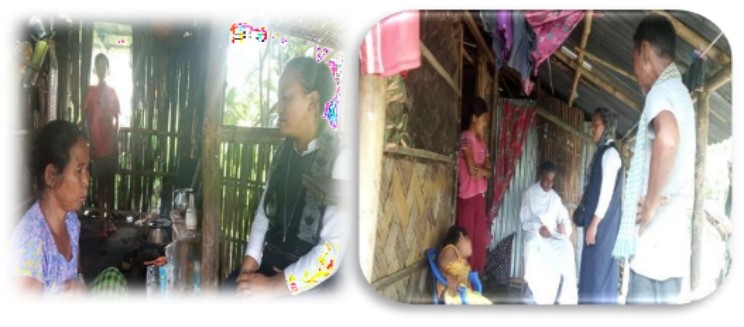
by Sr. Cherime Mrong Marak RNDM
“We do not learn; and what we call learning is only a process of recollection” (Plato)
The visit to Garo villages and other villages of the Sohra Parish is a journey that has an impact on one’s life; makes one think beyond the four walls of the convent, to see and feel the challenges faced by the people of these villages. One can be grateful to God for the wonderful opportunities and to experience Him through the people. The people of the villages face multiple struggles and challenges in comparison to religious life which is secure with set plans and fixed schedules that will work. Among the village people, one can notice that they are very religious, they trust in the providence of God. Their faith in God can be a wake-up call for us, in spite of the difficulties they remain serene, strong and live simply.
The village experience can make one aware of mother nature and the long and lasting relationship of the people with nature is a value worth measuring. The people and nature are one, this is the best ecological approach ever. In some villages people suffer from lack of water and other facilities yet they follow the natural cycle and manage the supply of resources wisely and prudently, there is no waste and hoarding of anything that nature provides. They need to discover the cause of the water shortage and stand up for their right to water. Who is there to help them? This is a question we need to ask ourselves.
Family visits are also occasion to pray with and for the sick, the suffering and the elderly and to remember them in our community and personal prayer. In the villages one can find sick people left at home to recover gradually with the help of herbal medicines. This needs special inner strength and patience.
Companionship is also one of the best journeys ever made in the life of a missionary. A walk with a companion gives us an opportunity to know our own Sister and ourselves, more deeply. A shared life in the mission of Jesus is being realised in journeying with our own companions and being supported by the members of our community.
People in the village are not spared the clutches of mass media and its negative impact on their lives. One could come across youths who have dropped out of school, become addicted to alcohol, smoking and drugs. These problems are brought about by poverty, deprivation of basic human rights, reasonable income, lack of education and or job opportunities.
To conclude, pastoral visits to villages are very enriching and challenging. It is like being in an open classroom, offering experiences of life and its realities in depth. It is a call for us to witness Christ among the people and to learn from their deep faith, simple life style, their communitarian aspect of life and their dependence on God and nature.